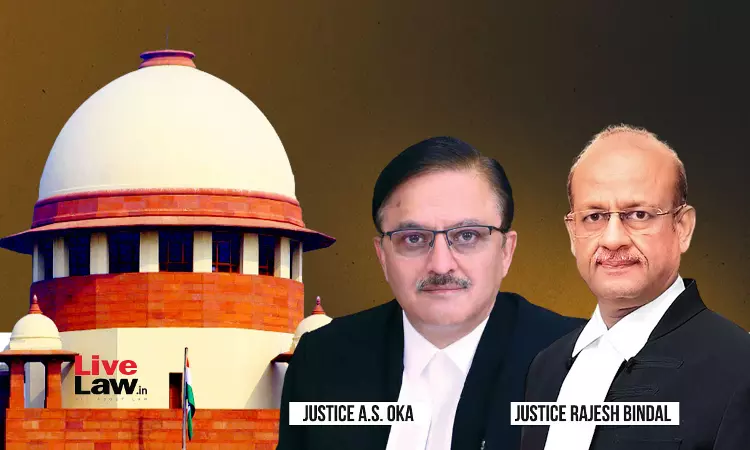Trial Courts, Public Prosecutors Should Be Vigilant While Framing Of Charges Against Accused: Supreme Court
Ashok KM
18 April 2023 11:02 AM IST

Next Story
18 April 2023 11:02 AM IST
The Supreme Court observed that Trial Courts and the Public Prosecutors should be vigilant in the matter of framing of charges."Apart from the duty of the Trial Court, even the public prosecutor has a duty to be vigilant, and if a proper charge is not framed, it is his duty to apply to the Court to frame an appropriate charge", the bench of Justices Abhay S. Oka and Rajesh Bindal said.In...
